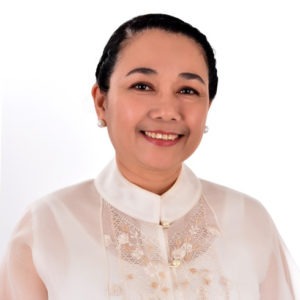

WEATHERING THE ‘PERFECT STORM’
Addressing the Agriculture, Energy, Water, Climate Change Nexus
12-13 August 2019, Canberra

Professor Alice Joan G. Ferrer

Professor, Division of Social Sciences
University of the Philippines Visayas
Dr Alice Joan G. Ferrer is a Professor and a Scientist from the University of the Philippines Visayas. She holds a Masters and PhD (Economics) degrees from School of Economics, University of the Philippines. Her interests are in fisheries and aquaculture social sciences, policy analysis, health economics, gender, climate smart agriculture, governance, among others. She has peer-reviewed journal articles, chapters in books, and a book. Currently, she is the President of the Asian Fisheries Society, National Deputy Director of the Economy and Environment Group Philippines, and the Executive Director of a Health R & D Consortium of the Philippine Council for Health Research and Development.
Climate Smart Village: Key to a sustainable future in rural communities
Abstract
The CGIAR Research Program on Climate Change, Agriculture and Food Security (CCAFS) pilot tested climate-smart villages (CSVs) in Southeast Asia (SEA), specifically in Vietnam, Cambodia, Lao PDR, and the Philippines since 2014. The CSVs served as loci for community mobilization and participatory processes where knowledge and capabilities of men and women are enhanced and their motivation promoted to take action towards food security, agricultural productivity, climate change adaptation, and mitigation. In the CSVs, evidence was generated at local scales of what Climate Smart Agriculture options work best, where, why, and how, and this evidence were used to draw out lessons for agricultural development practitioners, policy makers and investors from local to global levels. As a context-responsive, process-focused, and outcome-oriented approach, the CSV strengthened existing village programs, and structures towards climate action. The CSV approach is now being considered in programs in the Philippines, Vietnam, and Myanmar. In this presentation, we report the results of how the CSVs have been contextualized, participatory processes implemented, and the emerging outcomes attained.